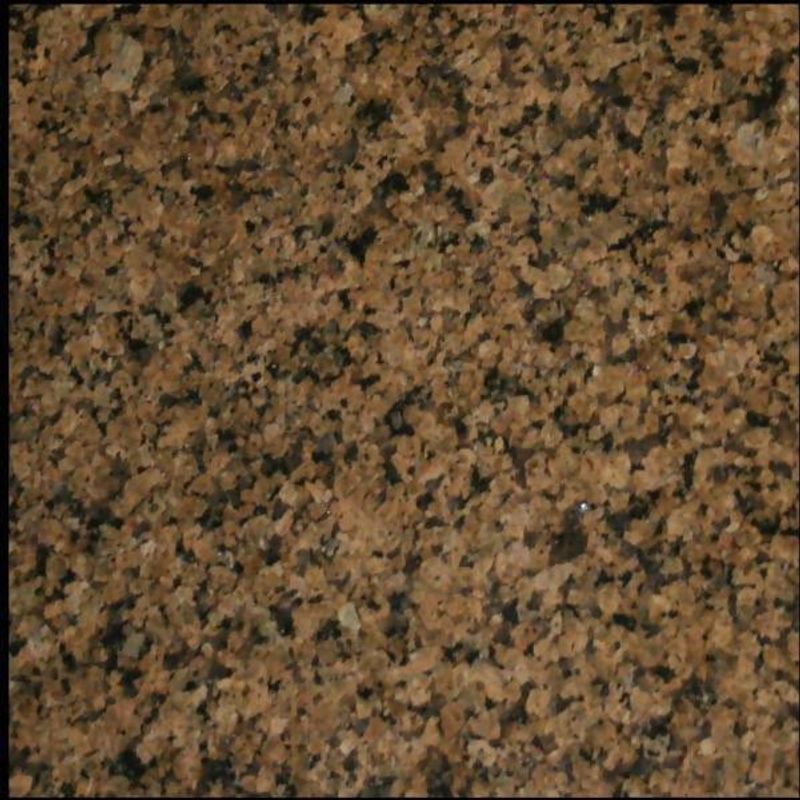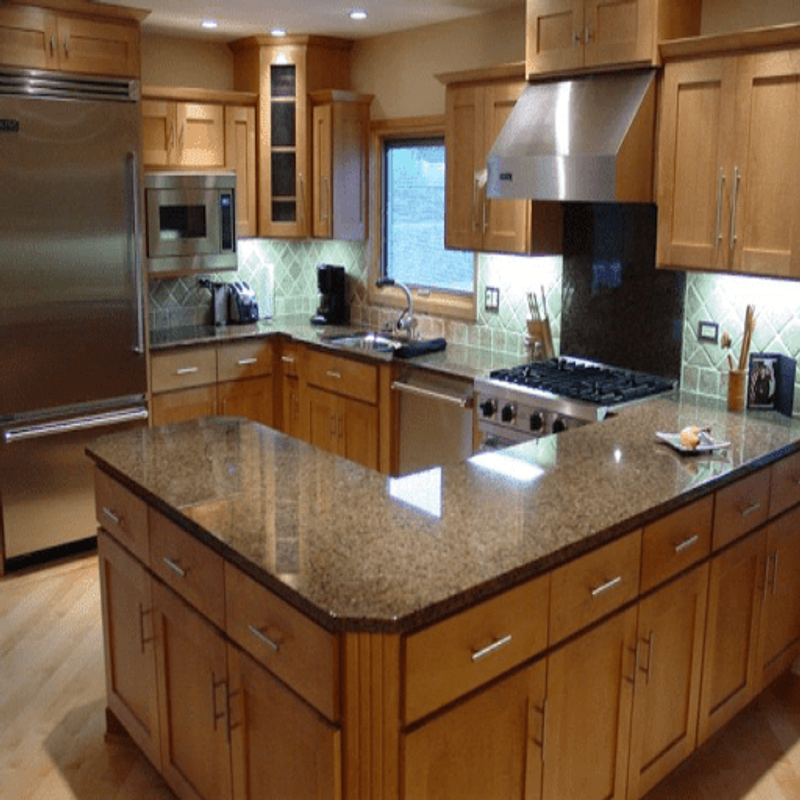Tropical Brown granite is internationally classified as a natural stone and. in the context where it is used in the European Standard. this stone must be designated as an actual granite. This stone. originally quarried in Najran. Saudi Arabia. is a medium-grained. brown granite that dates back to the Precambrian period.
Appearance: It exhibits a coarse. golden brown texture with patterns of black and tan speckles composed of different minerals. A small fraction of Tropical Brown granite slab is generally illustrative and does not exhibit extreme variation in colour and veining. However. for larger projects swatch samples need to be verified and validated to make sure that the blocks are collected from the exactly same quarry to ensure a uniform design pattern.
Properties: Natural granite has a significant advantage over other hard countertop surface materials in that it is extremely hard. Because of their hardness. materials like Tropical Brown Granite are resistant to scratches. It is also resistant to heat. Granite worktops. unlike engineered stones. can withstand heat and do not burn or discolour. With timely polishing. this Tropical Brown granite becomes frost resistant too.
Suitable Applications: Tropical Brown Granite is suitable for both exterior and interior uses like commercial and domestic construction projects. wall capping. flooring. kitchen worktops. bathroom worktops. vanity tops. washbasins. kitchen sink units. mosaic pools. fountains. and other projects of design.
Synonymous names: Tropic Brown Granite. Tropik Brown Granite. Ghadeer Granite. Naranja Brown Granite. Nayarin Brown Granite. Havana Brown Granite. Najran Brown Granite. Askar Brown Granite. Beir Askar Granite. Bis Askar Granite. Bir Askar Brown Granite. Desert Brown Granite. Falcon Brown Granite. Diamond Gold Granite.
Sealing: Sealing annually or biannually with or without the help of a professional is mandatory to prevent the worktops from sucking in germs and microbes from causal liquid spills. It is feasible to put a sealant on Tropical Brown granite. but excessive sealing attempts may result in a residual film build-up. When polishing. a clear epoxy resin is utilised to fill the pits or microscopic dents. It is to be understood that this process does not affect the internal composition and strength of the stone. but rather just provides a smoother surface.
How to tell when your granite worktop needs resealing? Resealing a granite countertop is an easy task that can be carried out by homeowners too and must be done on a regular basis. It depends on how much wear and tear the surfaces endure from daily use. A water test on the Tropical Brown worktop surface can be performed every 6 to 12 months to determine how absorbent the stone is at that moment. Simply sprinkle some water on the stone in different spots and observe how quickly it is getting absorbed. The more the worktop shows absorbency. the greater the necessity for sealer.
Cleaning and maintenance
Regular cleaning. in addition to sealing your Tropical Brown surface. is critical to its care. There are several aspects to cleaning a granite surface. The first step is to clean your worktop on a daily basis with a natural stone cleaner designed to clean without destroying it. This will prevent you from having to frequently reseal your Tropical Brown surfaces than necessary.
Stain removal is another type of cleaning that you may need to do. Stone surface cleaners come in a variety of ranges. Specific cleaners are required to prevent the resealed pores of a stone from being exposed. Improper sealing or the use of the wrong types of daily cleaners might damage the polishes of worktops. If a stone is stained with cooking oil. for example. a stain remover may be required to take the oil out of the stone. However. by cleaning your Tropical Brown Granite worktop surfaces on a daily basis with the proper cleaner. you will automatically be repelling liquids that cause stains.

